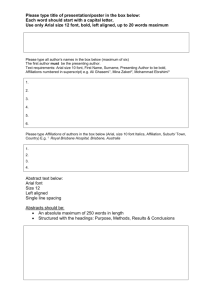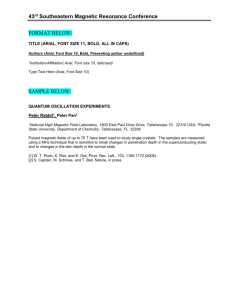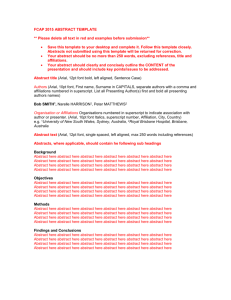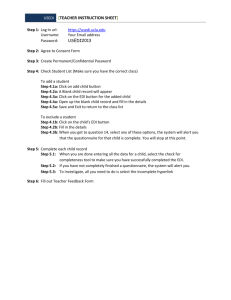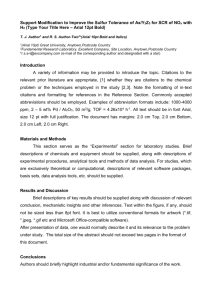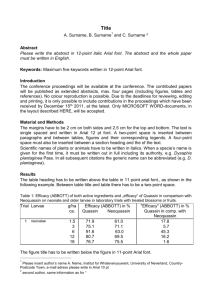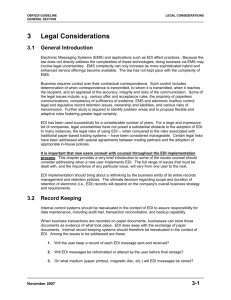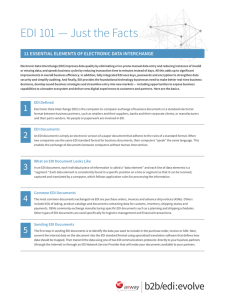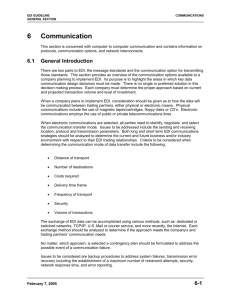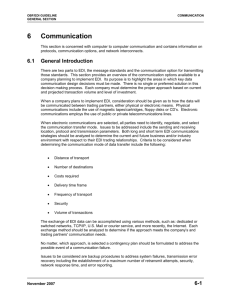Australian Early Development Census National Conference 2015
advertisement
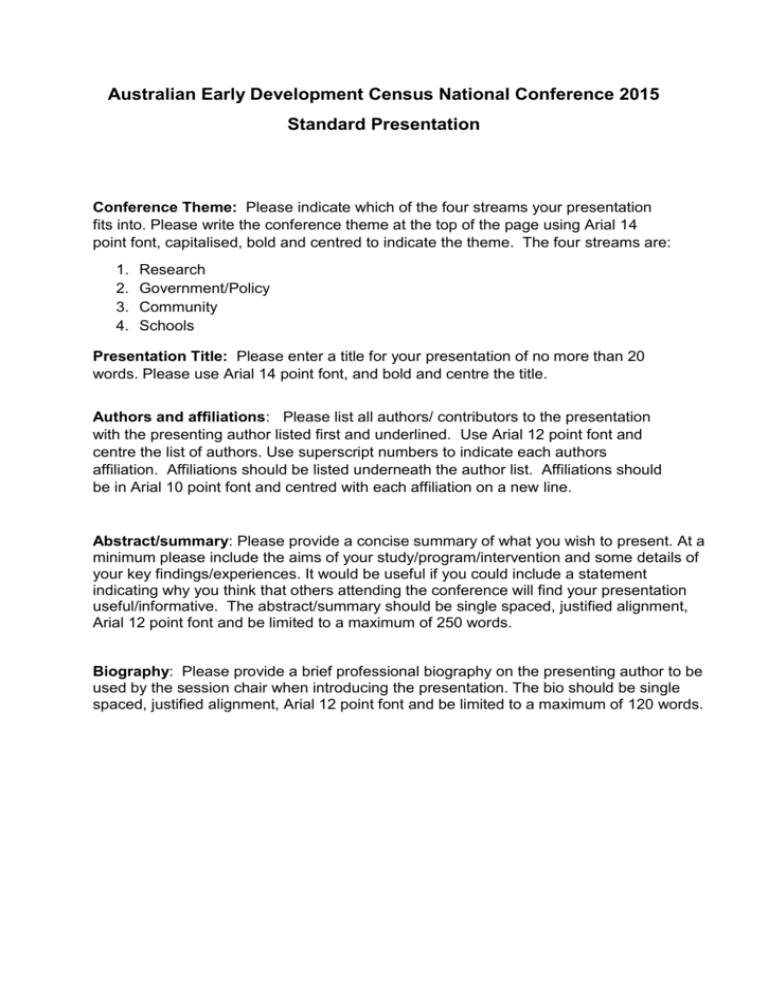
Australian Early Development Census National Conference 2015 Standard Presentation Conference Theme: Please indicate which of the four streams your presentation fits into. Please write the conference theme at the top of the page using Arial 14 point font, capitalised, bold and centred to indicate the theme. The four streams are: 1. 2. 3. 4. Research Government/Policy Community Schools Presentation Title: Please enter a title for your presentation of no more than 20 words. Please use Arial 14 point font, and bold and centre the title. Authors and affiliations: Please list all authors/ contributors to the presentation with the presenting author listed first and underlined. Use Arial 12 point font and centre the list of authors. Use superscript numbers to indicate each authors affiliation. Affiliations should be listed underneath the author list. Affiliations should be in Arial 10 point font and centred with each affiliation on a new line. Abstract/summary: Please provide a concise summary of what you wish to present. At a minimum please include the aims of your study/program/intervention and some details of your key findings/experiences. It would be useful if you could include a statement indicating why you think that others attending the conference will find your presentation useful/informative. The abstract/summary should be single spaced, justified alignment, Arial 12 point font and be limited to a maximum of 250 words. Biography: Please provide a brief professional biography on the presenting author to be used by the session chair when introducing the presentation. The bio should be single spaced, justified alignment, Arial 12 point font and be limited to a maximum of 120 words. Australian Early Development Census National Conference 2015 EXAMPLE ABSTRACT RESEARCH STREAM The Australian Early development index (EDI) predicts reading and numeracy skills seven years later Gregory, T.1,2, Brinkman, S.1,2 1Telethon 2University Kids Institute, Perth, AUSTRALIA of Adelaide, Adelaide, AUSTRALIA In Australia, the EDI has been adapted to the AEDI and in 2009 it was administered as a census to all children in their first year of full time schooling. Over the next few years data linkage systems will be used to link the AEDC data with school assessments to explore how well the instrument can predict academic performance in later childhood. However, data collected during the initial piloting of the EDI in Australia provide an opportunity to explore this association now. In 2003, teachers completed the EDI assessment for 4,420 children living in Perth, Australia. In 2010, the EDI data were linked to state and national school assessments completed when the children were in Year 3, 5 and 7. Linked data were available for a total of 1,823 children. Results showed that children who were vulnerable on one or more domains of the EDI were significantly more likely to perform poorly on reading and numeracy assessments in Year 3, 5 and 7 than children who were not vulnerable on any domains of the EDI. The strength of the association remained very stable over time. These results suggest that interventions aimed at reducing the number of children who are developmentally vulnerable on the EDI at age five should also reduce the number of children with reading and numeracy problems in later childhood. The findings will be of relevance to those in the school sectors and policy makers. PRESENTER BIO: Dr Tess Gregory is a Senior Research Fellow in the Fraser Mustard Centre, a partnership between the Telethon Kids Institute and the South Australian Department for Education and Child Development aimed to improve research translation. Dr Gregory holds a Bachelor of Mathematics and Computer Sciences and a PhD in Psychology from the University of Adelaide. Dr Gregory’s current research focuses on using population level data on children’s health and wellbeing, including the Australian Early Development Census and the Middle Years Development Instrument, to inform policy and practice.
